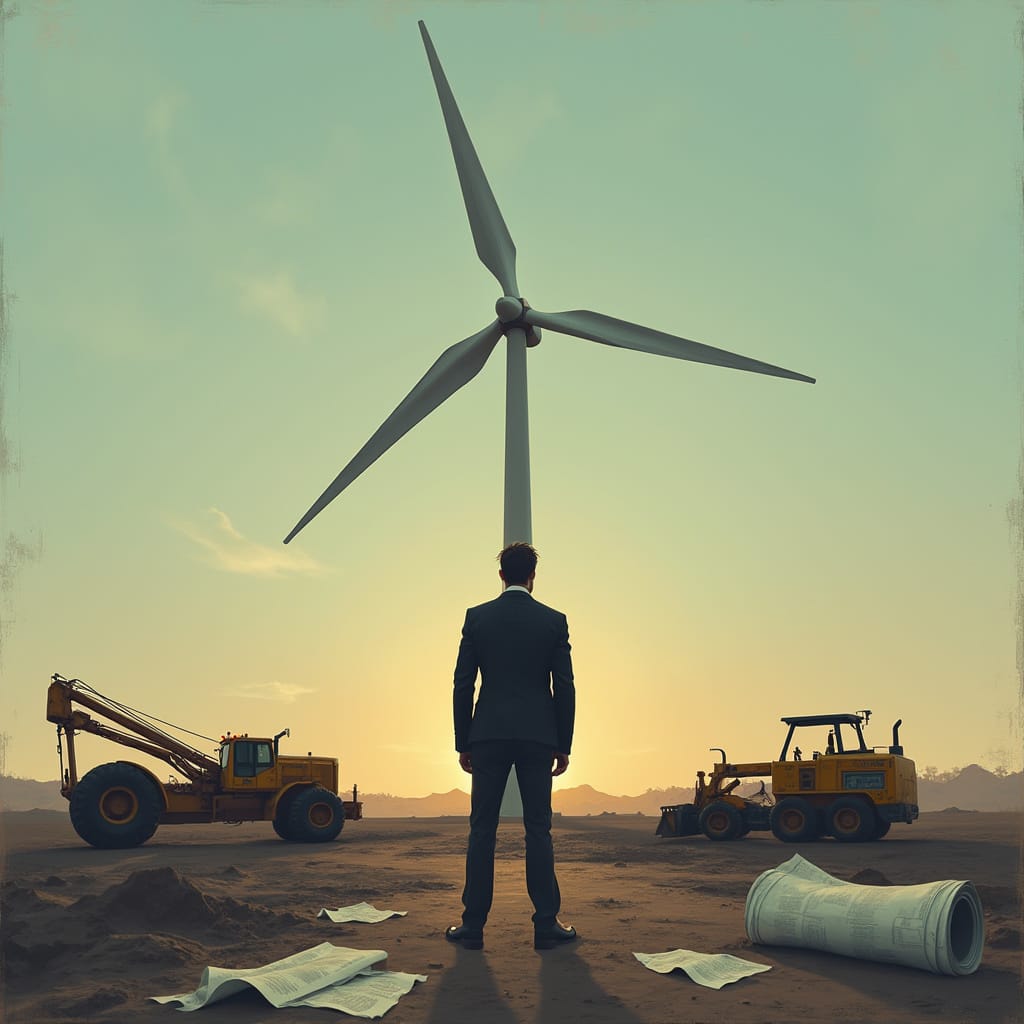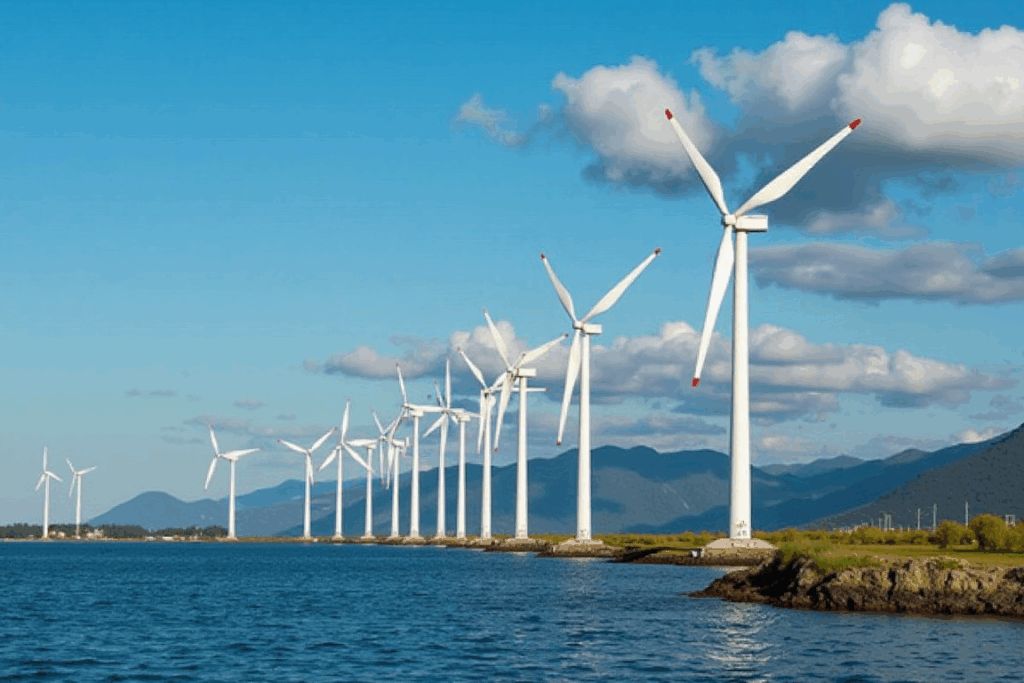Breaking News
Popular News




Enter your email address below and subscribe to our newsletter

The global transition towards clean energy faces new obstacles because of rising tariffs. Countries impose trade taxes on imported goods, which result in systematic delays in the advancement of renewable energy projects. The standard practice of safeguarding local industries through tariff protection has evolved to become a serious obstacle to climate change efforts.

Countries impose tariffs as customs fees that they charge to incoming foreign merchandise. Countries that implement tariffs on solar panels imported from other nations effectively raise the price of those products. Such measures exist to support local businesses against international competitors. The plan assumes that higher prices on foreign goods will lead customers to choose domestic businesses.
Numerous states continue to purchase components for solar power and wind energy, and electric vehicles from outside sources. A problem arises because not every country possesses the manufacturing facilities to produce solar panels, wind turbines, or electric car batteries. The cost of these essential technologies rises because of tariffs, which leads to greater expenses in constructing clean energy systems. How Tariffs Affect Solar Energy
The world has experienced rapid growth in solar energy as one of its main renewable energy resources. The expansion of the solar industry heavily depends on worldwide trading relationships. China leads the world as the largest producer while manufacturing the bulk of solar panels that emerge from Asian facilities.
A number of countries across the United States and the European Union have established duties on solar panels from China over recent years. The introduced trade barriers were intended to protect national solar production facilities and decrease China’s dominance in the market. The outcome of these measures has shown limited success.
The implementation of solar panel tariffs within the United States noticeably raised the construction expenses for new solar energy projects. The Solar Energy Industries Association (SEIA) reported that thousands of megawatts of solar projects were either postponed or cancelled due to the imposed tariffs. These amounts of energy can provide electricity to numerous domestic households.
The goal of fighting climate change requires governments to eliminate these barriers according to many clean energy companies. The progress we require is getting negatively impacted by tariffs according to Julia Thompson who works as a renewable energy project manager in Texas. The increasing expenses related to solar development pose challenges because of the emergence of import taxes. Wind Energy Also Feels the Pain
The quick expansion of wind energy represents an additional clean power solution. Wind turbines contain several components that wind farms acquire from foreign suppliers. Steel and aluminium duties lead to higher prices for critical wind turbine components including towers and blades.
As a part of its trade policy in 2018 the United States started imposing tariffs on imported steel and aluminium. The trade restrictions spread throughout all aspects of the wind power sector. According to the American Wind Energy Association (AWEA), wind-related projects became more expensive by up to 10% because of the newly implemented tariffs. Small cost increases matter significantly in projects with large energy requirements since they create the distinction between project success or failure.
Wind energy industries throughout Europe have cautioned about how trade constraints combined with tariff policies affect their sector. The European Wind Energy Association explains the region should achieve climate-neutrality by 2050 by reducing the cost of clean energy instead of increasing it.
The Battery Problem:
Electric Cars and Storage The implementation of tariffs creates difficulties in the development of battery technology. Electric cars, together with the storage of solar and wind energy, require batteries to operate effectively. Most battery manufacturing technology and its components are produced by China alongside South Korea and Japan, while the rest of the world depends on them for batteries.
The implementation of tariffs by countries drives electric vehicles toward higher prices. The increased costs make electric vehicles less affordable to potential buyers. High expenses associated with battery storage systems hinder the ability to maintain access to clean energy for periods when sunlight is absent and wind power vanishes.
The Indian government implements import duties on battery cells to stimulate local cell production. The goal of developing a strong domestic industry through these measures has resulted in higher EV prices until the industry matures. The sales decline, together with numerous small startups facing extreme challenges to survive. Protecting Local Industry vs. Fighting Climate Change
The quick expansion of wind energy represents an additional clean power solution. Wind turbines contain several components which wind farms acquire from foreign suppliers. Steel and aluminium duties lead to higher prices for critical wind turbine components including towers and blades.
As a part of its trade policy in 2018 the United States started imposing tariffs on imported steel and aluminium. The trade restrictions spread throughout all aspects of the wind power sector. According to the American Wind Energy Association (AWEA) wind-related projects became more expensive by up to 10% because of the newly implemented tariffs. Small cost increases matter significantly in projects with large energy requirements since they create the distinction between project success or failure.
Wind energy industries throughout Europe have cautioned about how trade constraints combined with tariff policies affect their sector. The European Wind Energy Association explains the region should achieve climate-neutrality by 2050 by reducing the cost of clean energy instead of increasing it.

Electric Cars and Storage. The implementation of tariffs creates difficulties in the development of battery technology. Electric cars, together with the storage of solar and wind energy, require batteries to operate effectively. Most battery manufacturing technology and its components are produced by China alongside South Korea and Japan, while the rest of the world depends on them for batteries.